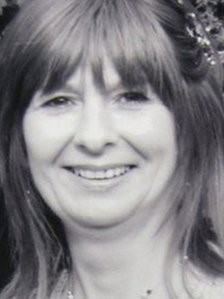
Murdered launderette worker Marion Millican
A Co Derry man jailed for shooting dead his ex-lover in a Co Derry launderette is attempting to have his murder conviction overturned for a second time.
Fred McClenaghan’s appeal against the guilty verdict is listed for a hearing in November.
McClenaghan, 53, is serving a 16 year sentence for killing Marion Millican with an antique shotgun in March 2011 at the launderette where she worked in Portstewart.
He has twice been found guilty of the murder at separate trials.
McClenaghan is now launching a new bid to have his conviction quashed by the Court of Appeal and stand trial again.
Legal sources say the main thrust of McClenaghan’s appeal is that trial judge Mr Justice Treacy misdirected the jury in his charge to them before they retired to consider their verdict.
“McClenaghan maintains his innocence of murder and says it was an accidental discharge during a struggle. That’s his defence,’’ said a legal source.
“But the jury didn’t believe him. They believed the prosecution case that it was ‘murder, pure and simple’.’’
If three appeal court judges agree to overturn his conviction and order a fresh trial, it will be the fourth time he will sit in the dock of a crown court as his defence team argue that he is innocent of the murder.
At his trial two years ago at Antrim Crown Court, defence QC John McCrudden told the jury that McClenaghan, of Broad Street, Magherafelt, was suffering from a “severe depressive disorder” at the time of the murder.
He said he had been seen by 13 professional people about his “anxieties, problems, difficulties and suicidal ideations”.
Mr McCrudden added: “At the time he had thoughts of harming her. He was seeking help. He was coming to them for help. He was not the classic murderer.
“He was in a deep, dark place that was scaring him as he was a danger to himself and to other people.”
He told the jury that if they found that McClenaghan was suffering from diminished responsibility, “you should not convict him of murder but convict him of manslaughter”.
Derry Daily understands that further grounds of appeal will centre on forensic evidence put before the jury relating to the shot, ballistic tests on the weapon, and trigger measurements on the 100-year-old antique double-barrelled shotgun he claimed he bought for protection from loyalist paramilitaries.
Mr McCrudden had attacked the evidence of two expert prosecution witnesses from the Forensic Service of Northern Ireland as “unreliable”.
They told the trial how they examined the shotgun after it was seized by police.
The defence QC said that the sworn evidence the experts had given during the trial was “completely different” from that of the testimony they had given at the first trial two and a half years ago.
Likening the witnesses to two car salesman, he told the jury: “Would you buy a used car or a used gun from these two witnesses?”
He added that the experts had not followed their own procedures or internationally recognised protocols on the testing of the antique shotgun weapon to prove whether the gun could have been accidentally discharged.
Branding their evidence as a “disgrace to the system it’s supposed to contribute to,” he told the jury: “They gave conflicting accounts. They were contradictory and unreliable accounts.”
McClenaghan refused to give evidence at all his trials which prevented the prosecution from quizzing him about his story.
All the jury heard was that he told doctors, medical staff and charity workers that he was suicidal, deeply depressed, that he had been sexually abused as a child, and wanted Marion back.
However, the prosecution painted a different picture, one of a thug who bullied his family and who repeatedly assaulted Ms Millican during heavy drinking binges.
In his summing up to the jury, prosecution barrister Neil Connor said: “We say this was an abusive relationship.
“And this murder was akin to an execution.’’





